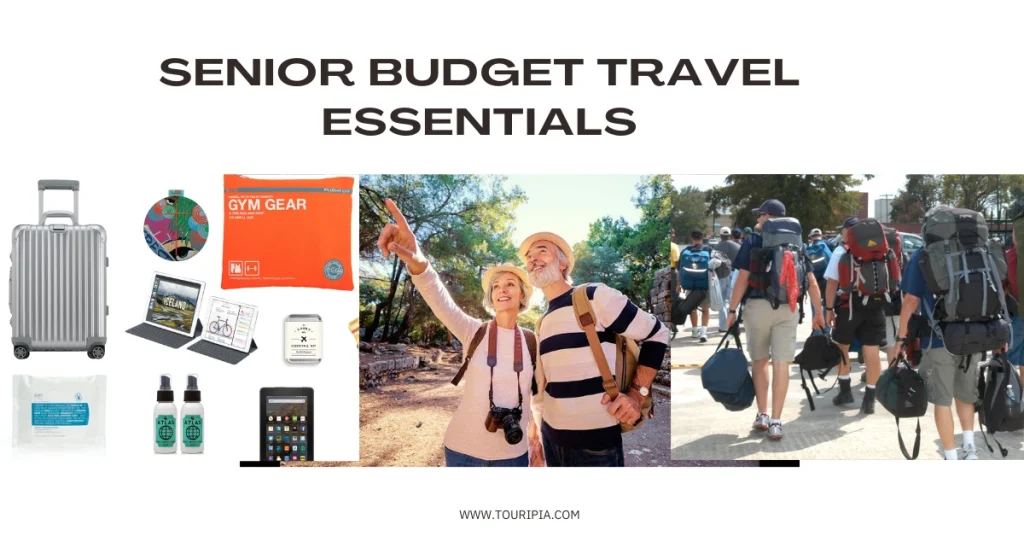The Smart Traveler’s Guide to Rental Extensions

You’re midway through your trip. The sun’s shining. The idea of returning your rental car? Not exactly tempting.
Maybe your road trip took a spontaneous (but welcome) detour—like deciding to keep your Range Rover rental Dubai for a few more days of exploring. Maybe your meetings ran longer than planned. Or maybe you just want to enjoy a little more time on the road.
Whatever the reason, extending your rental is doable—just don’t leave it to chance.
Wait too long or gloss over the fine print, and that simple extension could turn into a surprise charge, a higher rate, or a paperwork mess.
The upside? A quick heads-up and a few smart moves can help you extend smoothly—and keep your plans rolling.
The Rising Reality of Rental Extensions
It happens more often than people think. In 2024, Skyscanner’s Travel Insights Report found that nearly 27% of international travelers extended their car rentals during trips — mostly because plans changed last minute. That’s one in four travelers adjusting on the go.
Rentalcars even found that early extensions cost, on average, 19% less than same-day requests.
The math’s simple: call early, save money.
(I once delayed calling my rental company in Greece by, what, two hours? The “updated rate” jumped from €70 to €110 per day. Lesson learned.)
Don’t Wait Until You’re Out of Time
Timing matters more than you think.
As soon as you know you’ll need the car longer, get in touch with the rental company. Don’t leave it until the last minute. If the vehicle’s already reserved for someone else—or if the system treats your update as a brand-new booking—you could be on the hook for a much higher rate.
Give it at least a day or two’s notice. That small buffer can help you avoid late fees and possibly hang onto your original pricing. Some companies charge for a full extra day if you’re even an hour behind schedule.
Yes—just one hour. That early call can really pay off.
You can also use the opportunity to ask for upgrades. It sounds odd, but when fleets rotate—especially midweek—agencies often have premium models sitting idle.
A quiet Tuesday afternoon call could turn your compact sedan into a mid-size SUV for a minimal bump in rate—or none at all.
Pro Tip:
If you’re renting in big travel cities like Dubai, Los Angeles, or Rome, ask about “same-class swaps.” You might get a higher-spec car for the same category when extending.
What to Ask When You Reach Out
Think of it like renegotiating a mini-contract. Most agents have some flexibility, but only if you sound prepared.
AutoRentals Weekly recommends keeping three things handy before contacting them:
- Your reservation number (obvious, but people forget).
- Your estimated new return date and time.
- The original rate and discount code (so they can’t “accidentally” remove it).
It sounds basic, but it keeps the chat factual instead of emotional.
Once you’ve got a rep on the line (or chat), start with the rate. Will it change?
Some systems reprice the entire reservation when the return date shifts—and that might bump you into a pricier tier.
Then check your insurance. Coverage doesn’t always carry over past the original contract dates, so it’s worth confirming.
Consumer Reports Travel Division found that 45% of travelers wrongly assumed their coverage continued through extensions. Don’t be one of them.
If you’re changing the drop-off location or tweaking the return time, ask whether that triggers any fees—or if it just requires a quick update.
And a tip? Be polite and clear. A little prep goes a long way with customer support.
Sneaky Fees to Watch Out For
Some of the costliest fees never show up in bold. They hide in the fine print or only come up if you ask. Hourly late returns? Yep, that happens. Some companies will even charge you just for changing the time you plan to drop off the car.
Timing can also impact your rate. Pushing into a weekend or holiday period might hike your total. Same goes for returning to a busy airport at peak hours.
Even high-end bookings—like a luxury car hire in Dubai—can come with extra fees if you change plans without notice.
Always ask for a detailed cost breakdown. It’s better to spot the surprises before they hit your card.
Travel + Leisure reported that rates around major holidays can surge up to 60% if you extend instead of rebooking.
Pro Tip:
If you’re extending into a holiday week or event period, compare the price of a fresh booking online first. You might land a cheaper deal with a promo code.
Using the App or Website? Read the Fine Print
Extending online is fast and convenient—and yes, it beats waiting on hold.
But here’s the catch: many systems will recalculate your rate based on current pricing. That sweet discount code you used the first time? It might not carry over.
Before you hit “confirm,” give the updated details a proper look. If anything seems off, call or chat. A two-minute conversation could save you a chunk of cash.
Also, many apps display estimated prices without taxes or local fees. A $50 daily rate might end up being $63 once VAT hits.
And if you’re traveling abroad, check currency conversions in your confirmation email. A small mismatch in exchange rates can quietly inflate your bill.
(Been there. A €20 “minor difference” once became $45 on my credit card statement. Sneaky stuff.)
Thinking of Changing Your Drop-Off Spot?
Plans change. Maybe your trip ends in a different city. Or maybe you just don’t feel like doubling back to the original pickup point.
Good news: most companies allow one-way returns. The catch? A one-way fee.
Hertz Dubai International charges roughly AED 400 if you drop off at Sharjah instead. Avis Italy charges by the kilometer difference. And if you’re crossing borders—say, France to Spain—expect €300 to €500 extra.
Check first. Ask about cost, and confirm whether it’s a new contract or just an update. Then get it in writing.
Keep a Record—Always
No matter how you extend—online, by phone, or in person—get documentation.
Save the confirmation email, updated contract, or even screenshots. Systems glitch. Details slip through.
Enterprise UK reported that 7% of extensions required billing corrections after the fact—usually missing discounts or misapplied taxes.
I once saw a traveler in Lisbon argue at the counter over €200 in “extra-day” charges—until she pulled up her timestamped confirmation email. Fee reversed.
Proof beats panic. Every time.
When Extending Might Not Be Worth It
Sometimes, it’s smarter to start fresh.
If your daily rate keeps climbing or you’re near your mileage cap, check new reservation options. You might find a better deal or a newer car.
Some companies even charge less if you walk into a nearby branch instead of extending online. A Marina branch, for example, might treat your request as a new local booking instead of a city-center rate.
Pro Tip:
If the numbers look bad, run a quick check through aggregators like DiscoverCars or AutoSlash. You might find the same car for less—and sometimes with delivery included.
International Extensions: What Changes Abroad
If you’re abroad, rules get trickier.
Each country has its own definition of “late return.” In Italy, you usually get a two-hour grace period. In the U.S., it’s thirty minutes.
Crossing borders? Insurance may not apply automatically. Many companies require written approval for international extensions, even if it’s within the EU.
Pro Tip:
Always call the local office—not the global helpline. Local staff know the small print about tolls, permits, and cross-border fees that the central team might miss.
A Few Last Things to Keep in Mind
You’ve got the essentials down. Just a few last reminders:
- Double-check your new return time — systems often round up.
- Confirm whether loyalty points apply (they usually do).
- Ask if new promos or discounts kicked in — some can retroactively lower your rate.
Frequent Traveler Digest noted that renters who consolidate extensions earn 22% more loyalty rewards than those who rebook separately. A small bonus, but it adds up.
The Emotional Side of It
There’s something psychological about extending a rental. It’s like you’re buying more freedom — one extra day of adventure.
I’ve done it countless times. Once in Portugal, when I couldn’t leave the Algarve’s coastline. Once in Dubai, chasing desert sunsets that felt endless. In both cases, a quick 10-minute call bought me something priceless: time.
Final Thoughts
Extending your rental doesn’t have to be complicated. The Traveler’s Guide to Rental Extensions is pretty simple at its core: call early, ask smart, read carefully, and always keep receipts.
Travel plans rarely go perfectly. Flights change, meetings drag, cities pull you in. Extensions are the quiet fix — a way to stay flexible without getting burned.
Do it smart, and it’s more than logistics. It’s a little act of freedom… one more sunrise, one more detour, one more story before you go.
People Also Ask
1. What is a rental extension?
It’s when you decide to keep your rental car longer than your original booking. You just update your return date and pay for the extra time.
2. Can you extend a rental car while on your trip?
Yes, absolutely. Most rental companies let you extend by phone, app, or at the counter — as long as the car’s still available.
3. Does it cost more to extend a rental car?
Usually a little. Rates can increase if you wait too long or extend during busy dates, so it’s smarter to call early.
4. How soon should you ask for a rental extension?
Ideally a day or two before your return date. It gives the company time to update your booking without charging late fees.
5. Can I extend my rental through an app?
Yes. Most major companies allow quick extensions online, but double-check the new rate — it sometimes changes automatically.
6. Will my insurance still cover me if I extend my rental?
Not always. Some travel or credit card coverage ends when the original contract expires, so confirm before extending.
7. What happens if I return a rental car late without extending?
You’ll likely be charged for an extra day, sometimes at a higher rate. Late returns without notice are rarely forgiven.
8. Can I change the drop-off location during an extension?
Yes, though there’s often a “one-way” fee if the new spot is far from the pickup point. Always confirm first.













